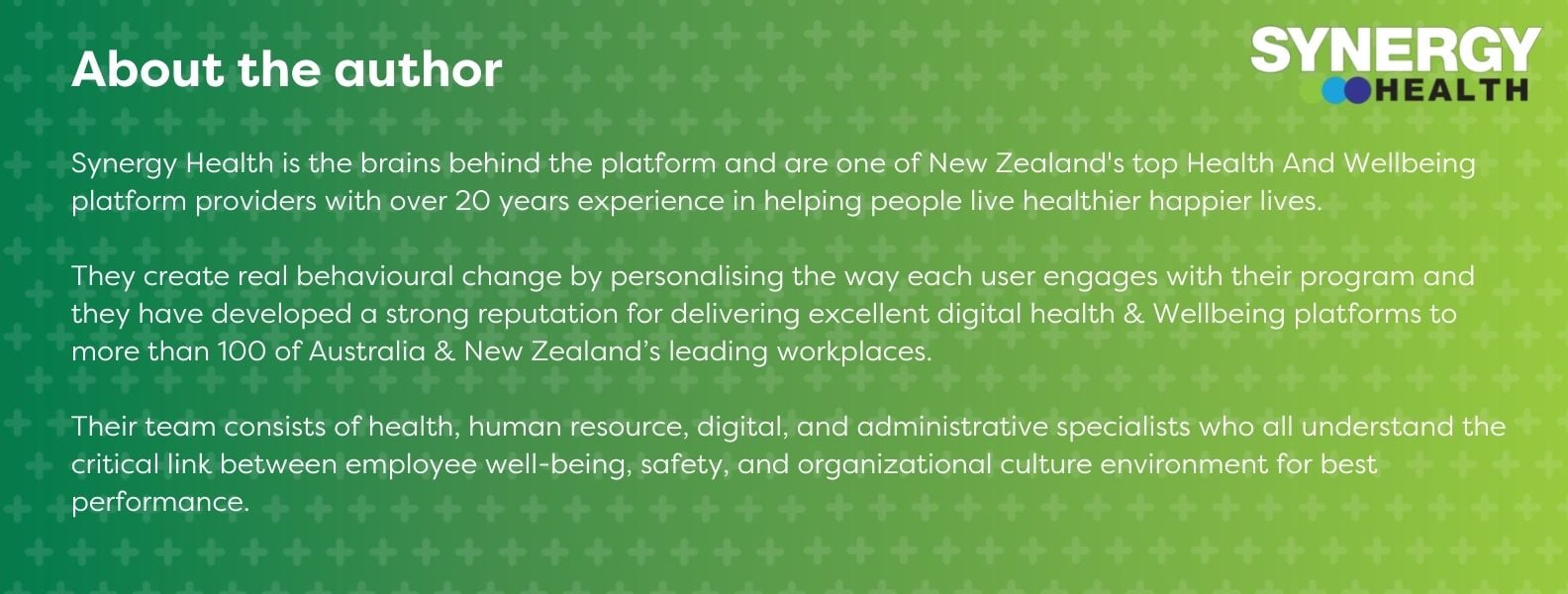Synergy Health are the team behind GoodForYou - your personalised wellbeing program that provides the tools and support you need to improve your health and mental wellbeing. They have a wide, varied and constantly growing range of wellness resources for you to access from their group of experts. Whether it's fitness, diet, sleep, social connection or competition, they take a holistic approach to getting the most out of life.
We regularly feature articles from The Synergy Health team and here they've created a series of articles that will help us stay safe and well this summer.
A lot of people find it easier to keep motivated in summer- the sun is up earlier and lasts longer, it’s easier to get out of bed, get your body moving and get outside to enjoy the weather.
However, there are a few key things to consider when exercising in summer:
1. STAY HYDRATED
Generally, water is the best way to stay hydrated. General recommendations suggest cool water (closer to room temperature) may be the most efficient for hydration as it is the easiest to digest. How much water you will need will depend on the types of exercise, the intensity of exercise, the temperature, and how hydrated you were to start with.
- Aim to drink plenty of water across the day, not just during exercise. Aim to drink two to three litres of water a day.
- Aim to drink an additional 750ml of water for every hour of exercise you complete
- Check your urine is a pale yellow colour, if it is darker than this, then you are dehydrated and need to drink more water until your urine is pale yellow.
Replacing electrolytes is mostly needed after more than one hour of moderate to high-intensity activity. You may also need to replace electrolytes if you sweat a lot or are exercising in very hot weather. Electrolytes include sodium, chloride, potassium, magnesium, and calcium; common tap water will also include some electrolytes.
Remember, sports drinks that claim to replace electrolytes are often loaded with sugar and extra energy, so if weight management is a goal you need to consider how much your daily energy you are drinking. If you are an amateur athlete training for a specific event and aren’t sure what your exercise and energy needs are, seek advice from a professional (e.g. exercise scientist, exercise physiologist, dietitian, or sports dietitian).
2. BE SAFE IN THE SUN
- Clothing – General sun safe rules should apply. Aim to wear a hat, sunglasses, and cool clothing that’s not too restrictive. Read the labels to get an idea of how breathable the material is. You want clothes that breathe and help promote airflow - the great news is that there are lots of fantastic exercise clothing available for all budgets!
- Location – If exercising outdoors, try to find an area that has some shade. If you can exercise indoors, opt for somewhere with an air-con or a fan to keep you cool.
- Sunblock – If you are going to be exercising outdoors, make sure you apply sunblock accordingly, even on cloudy days.
3. TIME IT RIGHT
In summer, try to avoid the hottest parts of the day (e.g. 10 am - 3 pm) where possible. Plan to exercise in the cooler times of day, such as early mornings and late afternoons, particularly if you plan on exercising outside. It’s always a good idea to have a backup indoor plan if the weather becomes too hot, or it rains.
4. ACTIVITIES TO AVOID
If it’s really hot, keep extended vigorous activity to a minimum and focus on lower intensity cardio or strengthening exercises.
5. COMMON SENSE IS THE KEY
If you start to feel dizzy or lightheaded, have a headache, cramps, excessive sweating, or cessation of sweating, it’s important to stop and look after yourself. Seek medical advice if your symptoms don’t subside fairly quickly.
Some health conditions, such as kidney disease, heart problems, cancer, and some neurological conditions require extra considerations, as exercising in hotter weather can place a lot of stress on the body. You also need to be careful if you are pregnant - a general rule is to stick to low to moderate activity, take frequent breaks if needed, and seek advice from a professional if needed.
To read all the articles in the summer wellness kit make sure you Login or Register to GoodForYou - our Health & Wellbeing Program. It is Free for all HealthCarePlus and UniMed policyholders.
If you are not a HealthCarePlus policyholder, you can join one of our three day-to-day health plans or the Hospital Select plan to get Free access.




